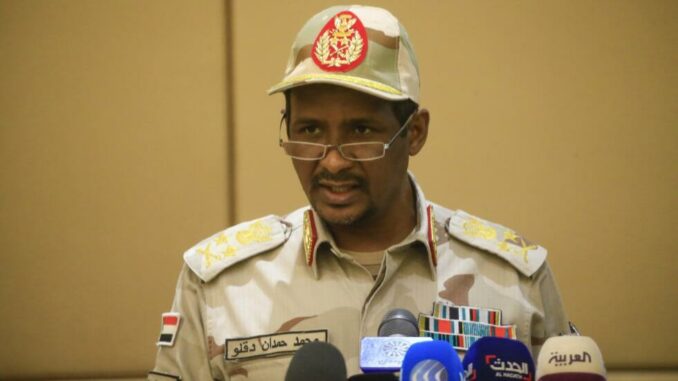
Despite recent military gains in Khartoum, the conflict in Sudan shows no signs of abating as both sides reaffirm their determination to continue fighting. RSF commander Mohamed Hamdan Daglo (Hamditi) declared on Sunday March 30 that his forces, although temporarily retreating from the capital, would return with even stronger resolve.
His comments follow the army’s assertion that it had eliminated the “last pockets” of RSF forces in Khartoum after nearly two years of intense warfare. The RSF leader’s statement serves as a stark reminder that the conflict remains far from over, with both factions refusing to engage in negotiations.
Army chief Abdel Fattah al-Burhan echoed this sentiment, vowing not to compromise or negotiate until “the last rebel” is eliminated from Sudan. Despite the military’s reclaiming of significant sites in Khartoum, including the presidential palace and war-damaged airport, the country remains deeply divided. The army controls the east and north, while the RSF retains control of much of Darfur in the west and parts of the south. The conflict has devastated the nation, causing what the United Nations describes as the world’s worst hunger and displacement crises, with over 12 million people displaced and tens of thousands killed.
International efforts to broker peace have faltered, with multiple ceasefires collapsing and US officials lamenting the failure of previous diplomatic attempts. Pope Francis has called for renewed negotiations, emphasising the need for dialogue, but with both sides entrenched in their positions, the prospects for peace remain uncertain. Recent RSF attacks in Blue Nile state and El-Obeid city highlight the ongoing violence, with civilian casualties continuing to rise. As Sudan’s military and paramilitary forces remain locked in a brutal struggle, the humanitarian toll of the war grows ever heavier.
